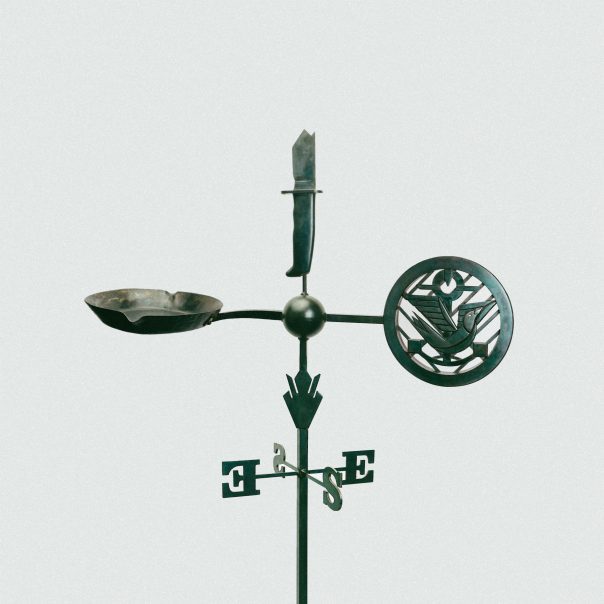REVIEW: Jason Isbell points to even sharper songs about real life with ‘Weathervanes’

Jason Isbell and the 400 Unit, “Weathervanes.”
In its promotional material, Weathervanes – the ninth album by Jason Isbell since departing the Drive-By Truckers in 2007 and sixth co-crediting the 400 Unit – is described as “a collection of grown-up songs … about adult love, about change, about the danger of nostalgia and the interrogation of myths, about cruelty and regret and redemption.”
Weathervanes
Jason Isbell and the 400 Unit
Southeastern/Thirty Tigers, June 9
8/10
Get the album on Amazon Music.
That’s to say it isn’t radically different in its mature themes than its most recent predecessor, 2020’s Reunions (the following year’s Georgia Blue is a covers album). But it does sharpen the details, and takes Isbell’s already renowned wordplay a step further. Weathervanes is indeed filled with Isbell’s ruminations on adult topics, including failed connections long- and short-term, jealousy, abortion, the harsh realities of being a foster child and growing up in the South. On “Middle of the Morning,” for example, Isbell – an Alabama native – sings of being “raised to be a strong and silent Southern man.”
This album, however, as do previous ones, shows Isbell is anything but silent, taking up topics not generally associated with his type of music, which (very) broadly falls into the alt-country or Americana buckets.
But such descriptors are too limiting. A song like “Save the World” addresses a topic – mass shootings – not typically found in these genres. He indirectly invokes the May 2022 Uvalde, Texas school massacre: “And when you said the cops just let them die, I heard the shaking in your voice,” and goes on to describe an anxious trip to the grocery store where he’s considering the fastest way out of there, if need be, as his kids scramble looking for the candy aisle.
Also not standard alt-country fare is “Volunteer,” a vivid recounting of life in (and after) the foster care system, following the death – possibly by murder-suicide – of his parents. He still misses his mother, he shares, and says he still doesn’t fit in with his world. It is raw and specific enough to make a listener pull back just a little. And “White Beretta” goes deep about a girlfriend’s abortion 30 years earlier, as Isbell wrestles to square that experience as a 19-year-old with his Christian upbringing.
As Isbell’s legion of fans already knows, this isn’t standard anything-country fare. He also brings the same level of dense writing to more everyday topics – specifically matters of the heart, including failed ones. In the desultory “King of Oklahoma,” over an acoustic guitar strum with finger-picked 12-string electric and distant fiddle, he talks about how Molly used to make him feel like that king, and that “nothing makes me feel like that anymore.” And on “If You Insist,” Isbell describes an encounter with a potential casual love interest with a jaded perspective: “I’m too tired to be excited, I’m too old to be ashamed.” Considering both his and his wife (and 400 Unit member) Amanda Shires‘ previous albums dealt with their relationship going through hard times, it’s not immediately clear where these songs fall in a personal timeline, if at all.
The 400 Unit’s instrumental support on ”If You Insist” is low-key and complex, as it is on much of Weathervanes. The Unit – guitarist Sadler Vanen, keyboardist Derry deBorja, bassist Jimbo Hart, drummer Chad Gamble and fiddler Shires – as on past albums, offers backing that sets a mood, though never in a trite way, as country music of both the classic and new breeds all too often does. The music roils and bubbles up around Isbell’s challenging lyrics, only seldom reaching full boil.
Though the 400 Unit can help some of these observations go down relatively smoothly, Weathervanes can in no way be described as “easy listening.” And while listening to the album in one sitting could well make one’s brain hurt, Jason Isbell’s storytelling here, taken in small helpings, is creative, honest, thought-provoking and, sometimes, courageous.
Follow journalist Sam Richards at Twitter.com/samrichardsWC.
